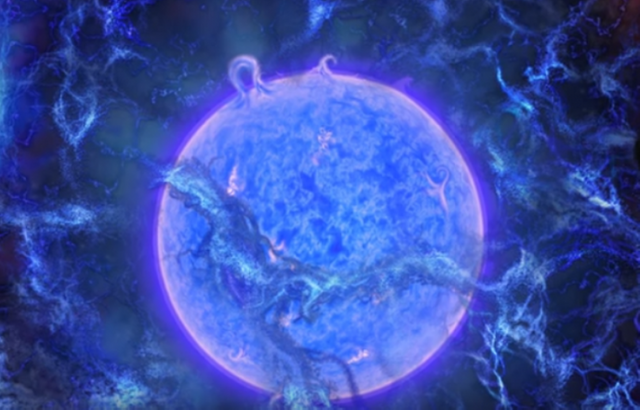
The universe lived in darkness during its first 180 million years. It must have been a horrible place. An immense, opaque, cold expanse; a place without light and without stars; a reportable mass of hydrogen flooded with radiation. But then, about 13.6 billion years ago, the first star began to shine.
It was almost a sigh in cosmological terms. 250 million years later, these stars began to die and black holes and supernovas made their appearance in the enormous theater of the universe. Nine billion years later, the sun would be born and, a long time after, we were born.
The cosmic dawn
Until now it was a story that arose from the equations of the models of the formation of the universe and that astronomers counted, but that had never been observed. Now, a team from Arizona State University has detected signals from the first stars that appeared and illuminated the universe. They have detected the dawn of the Cosmos.
"Finding this tiny signal has opened a new window in the early universe," said Judd Bowman, director of the project, and it was not an exaggeration, it is a revolutionary observation thanks to the faint trace left by the radiance of the oldest stars we can find new and unexpected evidence about dark matter.
In the same issue of Nature, another study is presented that tries to explain in a very innovative way why the universe was colder than we thought until now. And yes, the key seems to be in the energy transfers between primeval hydrogen and dark matter. At least that's what the proposal says.
Finding these postcards of the original stars have taken a decade and the truth is that it seems very little time for the technical challenge that entailed. And they have done it with an apparently unsophisticated instrument: it looks almost like a table. Two rectangular metal panels mounted on parasols of fiberglass and a metal mesh in the middle of a remote area of Western Australia (where the waves produced by humans almost do not interfere with our conversation with the cosmos).
We are facing a very exciting moment because, as Bowman says, "it is unlikely that we can see more early in the history of the stars in our life." Needless to say, we can already say that 13.6 billion years ago light was made.